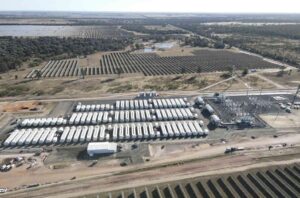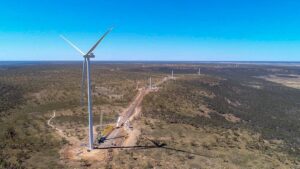Hydro Tasmania offshoot Entura has won a three-year contract to help the Cook Islands make the transition from diesel power to renewable energy, as part of the South Pacific archipelago’s goal to use 100% renewables on all of its 15 islands by 2020.
As part of the deal, Entura will develop preliminary designs for remote area power systems in six islands, and assist the Cook Islands Government in their implementation – as well as advising the Asia Development Bank, which provided a loan of $NZ12.98 million towards the project, on the best way forward.
According to Entura, the first phase of the project will convert the islands of Atiu, Mitiaro, Mangaia and Mauke from diesel to a solar-battery hybrid system that will supply close to 100 per cent of their energy needs, with diesel as a backup.

The second phase will focus on the islands of Aitutaki and Rarotonga, which have higher power demands. Last year, NZ company Infratec Renewables was awarded a $NZ3.3 million contract to build a 960kW solar farm at the Raratonga Airport.
Power systems on these two islands will be upgraded to increase levels of renewable energy penetration, and integrate grid stabilisation technology to pave the way for installation of further generation, says Entura.
The Tasmanian company will also deliver strategic advice to assist with energy policy development for the Cook Islands, and develop practical training for locals on the management and operation of renewable energy systems.
“Energy security and self-sufficiency are essential for remote islands such as Rarotonga, the most populous of the Cook Islands,” said Entura’s Managing Director, Tammy Chu.
“Diesel fuel remains the single largest expense to generate power in these remote locations, so using renewable energy makes good economic sense.”
Earlier this year, Entura was awarded a €148,000 grant to further explore the potential for installing mini-hydro in medium-sized cities, after successfully identifying opportunities to add hydro capacity to existing water supply infrastructure in the South African city of Durban.
The grant, from international NGO the Renewable Energy and Energy Efficiency Partnership (REEEP), will go towards development of Entura’s Durban project, which was co-funded by eThekwini Water and Sanitation, a service unit of Durban City Council.
The three-year Cook Islands project is expected to be completed in late 2018, well before the 2020 deadline.
It has also received funding via an EU Grant of €5.3 million, the Global Environment Facility ($US4.1 million), a product grant of Pacific Environment Community ($US3.9 million) and a government allocation for dedicated resource and land compensation.






